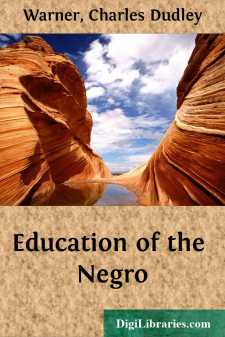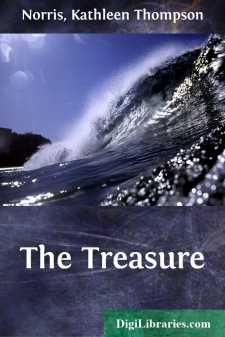Literary Collections
- American 84
- Ancient, Classical & Medieval 14
- Asian 1
- Australian & Oceanian 1
- Canadian 55
- Continental European 121
- English, Irish, Scottish, Welsh 179
- Essays 160
- General 24
- Letters 46
- Middle Eastern 1
Literary Collections Books
Sort by:
My name is Hugh Paret. I was a corporation lawyer, but by no means a typical one, the choice of my profession being merely incidental, and due, as will be seen, to the accident of environment. The book I am about to write might aptly be called The Autobiography of a Romanticist. In that sense, if in no other, I have been a typical American, regarding my country as the happy hunting-ground of...
more...
INTRODUCTION. Mary Wollstonecraft was born on the 27th of April, 1759. Her father—a quick-tempered and unsettled man, capable of beating wife, or child, or dog—was the son of a manufacturer who made money in Spitalfields, when Spitalfields was prosperous. Her mother was a rigorous Irishwoman, of the Dixons of Ballyshannon. Edward John Wollstonecraft—of whose children, besides Mary, the...
more...
CHAPTER I Amedeo Dorini, the hall porter of the Hotel Cavour in Milan, stood on the pavement before the hotel one autumn afternoon in the year 1894, waiting for the omnibus, which had gone to the station, and which was now due to return, bearing—Amedeo hoped—a load of generously inclined travelers. During the years of his not unpleasant servitude Amedeo had become a student of human nature. He had...
more...
PREFACE Seneca, the favourite classic of the early fathers of the church and of the Middle Ages, whom Jerome, Tertullian, and Augustine speak of as "Seneca noster," who was believed to have corresponded with St. Paul, and upon whom [Footnote: On the "De Clementia," an odd subject for the man who burned Servetus alive for differing with him.] Calvin wrote a commentary, seems almost...
more...
At the close of the war for the Union about five millions of negroes were added to the citizenship of the United States. By the census of 1890 this number had become over seven and a half millions. I use the word negro because the descriptive term black or colored is not determinative. There are many varieties of negroes among the African tribes, but all of them agree in certain physiological if not...
more...
CHAPTER I. For the rest of the way Violet walked with Mrs. Scobel, and at the garden-gate of the Vicarage Roderick Vawdrey wished them both good-night, and tramped off, with his basket on his back and his rod on his shoulder, for the long walk to Briarwood. Here the children separated, and ran off to their scattered homes, dropping grateful bob-curtsies to the last—"louting," as they called...
more...
by:
John Dryden
THE CONQUEST OF GRANADA. This play,—for the two parts only constitute an entire drama betwixt them,—seems to have been a favourite with Dryden, as well as with the public. In the Essay upon Heroic Plays, as well as in the dedication, the character of Almanzor is dwelt upon with that degree of complacency which an author experiences in analyzing a successful effort of his genius. Unquestionably the...
more...
CHAPTER I Lizzie, who happened to be the Salisbury's one servant at the time, was wasteful. It was almost her only fault, in Mrs. Salisbury's eyes, for such trifles as her habit of becoming excited and "saucy," in moments of domestic stress, or to ask boldly for other holidays than her alternate Sunday and Thursday afternoons, or to resent at all times the intrusion of any person,...
more...
by:
William Carleton
CHAPTER I.—A strong Farmer's Establishment and Family. It was one summer morning, about nine o'clock, when a little man, in the garb and trim of a mendicant, accompanied by a slender but rather handsome looking girl about sixteen, or it may be a year more, were upon their way to the house of a man, who, from his position in life, might be considered a wealthy agriculturist, and only a step...
more...
by:
Horatio Nelson
LETTER XL. Victory, under Majorca, January 13th, 1804. MY OWN DEAR BELOVED EMMA, I received, on the 9th, your letters of September 29th, October 2, 7, 10, 12, 17th, November 5th, 8th, to the 24th: and I am truly sensible of all your kindness and affectionate regard for me; which, I am sure, is reciprocal, in every respect, from your own Nelson. If that Lady Bitch knew of that person's...
more...











